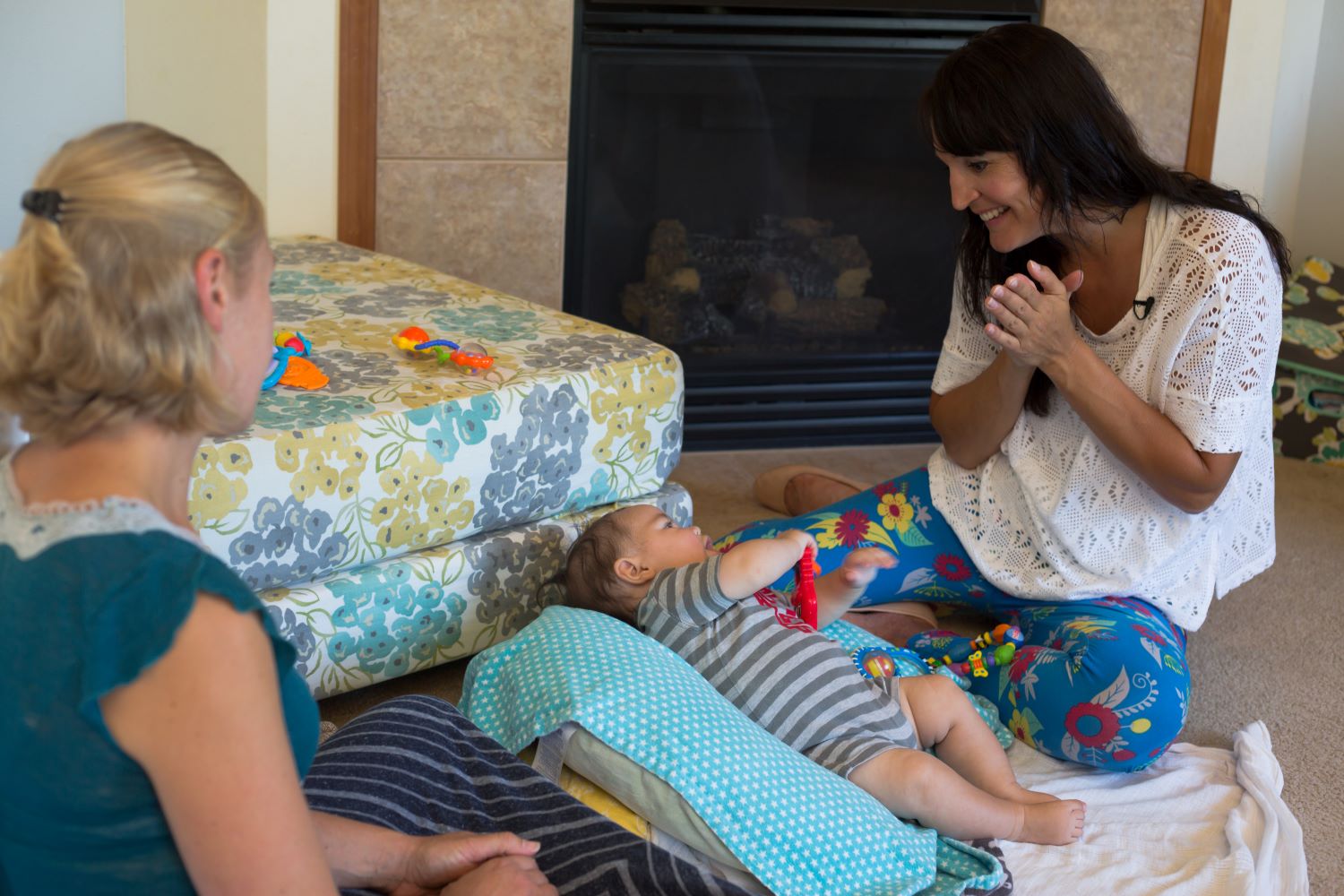 When education staff individualize interactions, daily routines, schedules, experiences, and environments in response to families’ cultures, languages, and goals for their children, they “appropriately support the unfolding development of each child at his or her unique pace.”[1] Responsive, individualized care supports this unfolding development, which is a necessary part of children’s journeys toward school readiness.
When education staff individualize interactions, daily routines, schedules, experiences, and environments in response to families’ cultures, languages, and goals for their children, they “appropriately support the unfolding development of each child at his or her unique pace.”[1] Responsive, individualized care supports this unfolding development, which is a necessary part of children’s journeys toward school readiness.
To individualize care that is responsive to infants and toddlers, staff:
- Listen to families, identify goals for children, and observe and document children’s development
- Reflect on and interpret what they see and hear
- Plan how to respond and implement their plans
- Reflect again on what happened
- Share information with families and ask for their input
While these actions often take place as part of a formal system of ongoing child assessment, staff also informally observe children as part of interactions with them and their families. Teachers and family child care providers have regular opportunities to exchange information with families about their children. Home visitors exchange information with families during weekly home visits and monthly group socializations. Both formal and informal opportunities provide valuable information staff can use to individualize care.
[1]National Infant & Toddler Child Care Initiative, Infant/Toddler Curriculum and Individualization (Washington, DC: U.S. Department of Health and Human Services, Office of Child Care, Zero to Three, 2010), 17.
Read more:
Resource Type: Article
National Centers: Early Childhood Development, Teaching and Learning
Last Updated: July 25, 2023